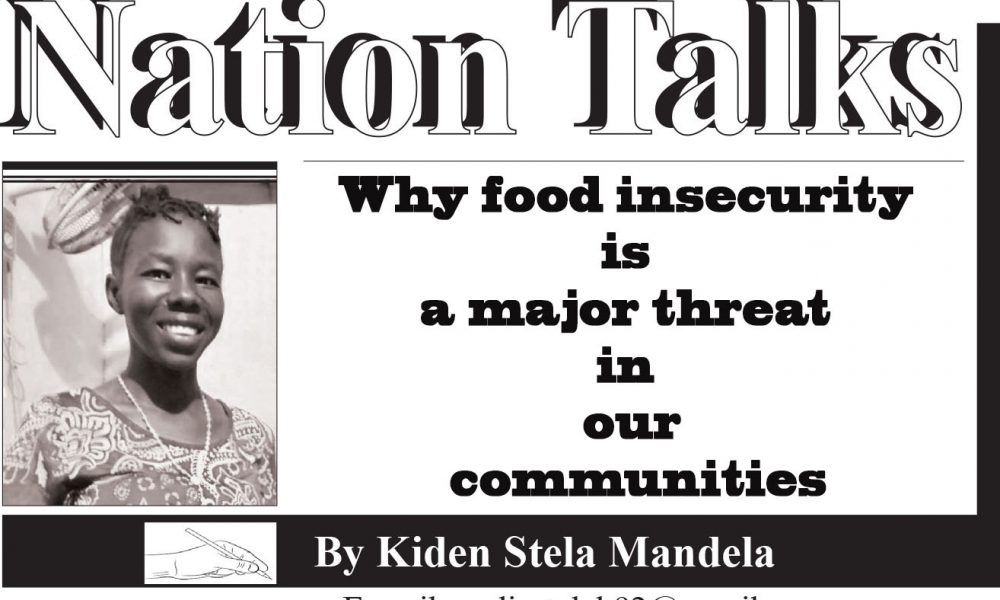We are at the mercy of nature as food insecurity has become part of the prevailing disease in our communities. Food insecurity by the standards of living means the lack of access to sufficient, safe, and nutritious food for an active and healthy life. It is a serious matter not only in South Sudan but all over the world and affects millions of people. However, for our country, it is a little bit different from other countries because almost the majority of the population is food insecure.
Food insecurity is caused by a variety of factors, such as poverty, unemployment, high food prices, natural disasters, (drought, floods, fire) and conflicts. It can have serious consequences for people’s health and well-being, including malnutrition, chronic diseases, and mental health problems, starvation or famine, low economic power, and impoverishment of society.
Unlike natural disasters that are beyond human expectation and control, other factors are underpinned by a lack of clear political direction and ambitions for the well-being of society. This is where politics is the tool to better society or to destroy it depending on how the players use it.
Political players who are misguided, and make uninformed decisions always find their society or communities hungry. This is because the political maneuvers would create environments that cannot allow the society to make good use of nature around to cultivate for themselves and be food secure.
With conditions of food insecurity in the country, humanitarian aids find markets in terms of support to the vulnerable food-insecure groups or communities. These food aids though we receive here for free, are being bought using money from countries and people who produced them. And brought to our doorsteps using money also.
Basically, billions or millions of money or funds are given to humanitarian organizations by donors to provide food aid to food insecure countries or populations; go to the economy of the countries that produced plenty, and the food aid are only shipped where needed in desperation.
And these food aids as distributed only solve symptoms, not the root cause of food insecurity; because the givers don’t have political power and authority to make decisions in regard to solving food insecurity; but the government.
So, addressing food insecurity by the sitting government or authority requires a multifaceted approach that involves improving access to affordable and healthy food, supporting local agriculture, and addressing underlying political, and socio-economic issues that contribute to food insecurity.
By empowering individuals and communities on the importance of reducing food waste and supporting sustainable agriculture, we can work towards a more just and equitable food system.
The government must tackle poverty and income inequality. By working to reduce poverty and increase access to economic opportunities, we can help to ensure that everyone has the resources they need to access healthy food.




